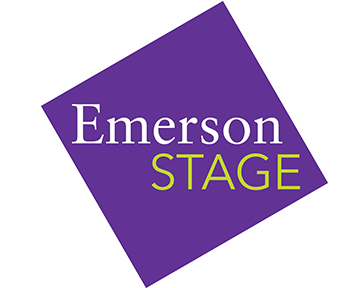EC + CM = <3
Written by Robert Onorato, Assistant Dramaturg
Emerson College loves Charles Mee.
Emerson Stage’s production of Big Love is only the latest bit of Mee-love the students and faculty of Emerson have lavished upon and cult playwright in recent years. Big Love has been taught in the core curriculum of the Performing Arts department’s “Language of the Stage” course for three years now. RareWorks, an on-campus student-run theatre company, produced another of Mee’s more famous plays, bobrauschenbergamerica, last December. And of course, Emerson was so grateful to work with the legendary Anne Bogart and SITI Company on their world premiere of Cafe Variations, which featured a book cobbled together from fragments of Mee’s plays, in the Spring of 2012.
Who is this Charles Mee character, and why does Emerson have such a — pardon me — big love affair with him? Simply put, there is no other active American playwright like him. Mee is the author of over 40 plays, all of which are available on his website, charlesmee.org. He was one of the first artists to upload his work for free on the internet, and this program of free access continues to this day. The website just got a delightful upgrade earlier this year, which included PDF downloads of each play (replacing the equally-as-cool iPhone app).
Mee argues that “there is no such thing as an original play.” Shakespeare adapted his plots; the Greek plays are dramatizations of long-existing myths. Brecht borrowed. Stoppard stole. Letts lifted. The culture we live alongside and perpetuate is permeable, and we utilize its ingredients to further it. Originality is a fantasy. Says Mee, on his method of composition:
The plays on this website were mostly composed in the way that Max Ernst made his Fatagaga pieces toward the end of World War I: texts have often been taken from, or inspired by, other texts. Among the sources for these pieces are the classical plays of Euripides as well as texts from the contemporary world.
I think of these appropriated texts as historical documents—as evidence of who and how we are and what we do. And I think of the characters who speak these texts as characters like the rest of us: people through whom the culture speaks, often without the speakers knowing it.
Big Love, for example, is a riff on the old Aeschylus play, The Suppliant Women, itself inspired by the myth of the Danaids. A note at the end of the play’s text reads: Big Love is also inspired by, or takes texts from, Klaus Theweleit, Leo Buscaglia, Gerald G. Jampolsky, Valerie Solanus, Maureen Stanton, Lisa St Aubin de Teran, Sei Shonagon, Eleanor Clark, Barbara Grizzuti Harrison, Kate Simon, and Laurie Williams, among others.
Mee is also the author of True Love and First Love, which complete a loose trilogy; another trilogy, which Mee calls “Imperial Dreams,” Iphigenia 2.0, Trojan Women: After Euripedes, and Orestes 2.0; The Bacchae 2.1; Utopia Parkway, inspired by the life of Joseph Cornell; and his early success, Vienna: Lusthaus, which was a collaboration with choreographer-director Martha Clarke.
Mee was a historian for many years before Vienna: Lusthaus, itself a work rooted in European history, made a name for him among the off-Broadway theatre scene of the 1980s. Many of his works have been produced with Bogart’s SITI Company, and he currently teaches, as he has for some years now, in the graduate theatre program at Columbia, alongside Bogart in the Directing program.
To get a firsthand look at Mee’s strange and beautiful plays, be sure to reserve your tickets now to Emerson Stage’s production of Big Love, directed by Courtney O’Connor, playing in the Greene Theatre Oct 3-6.
